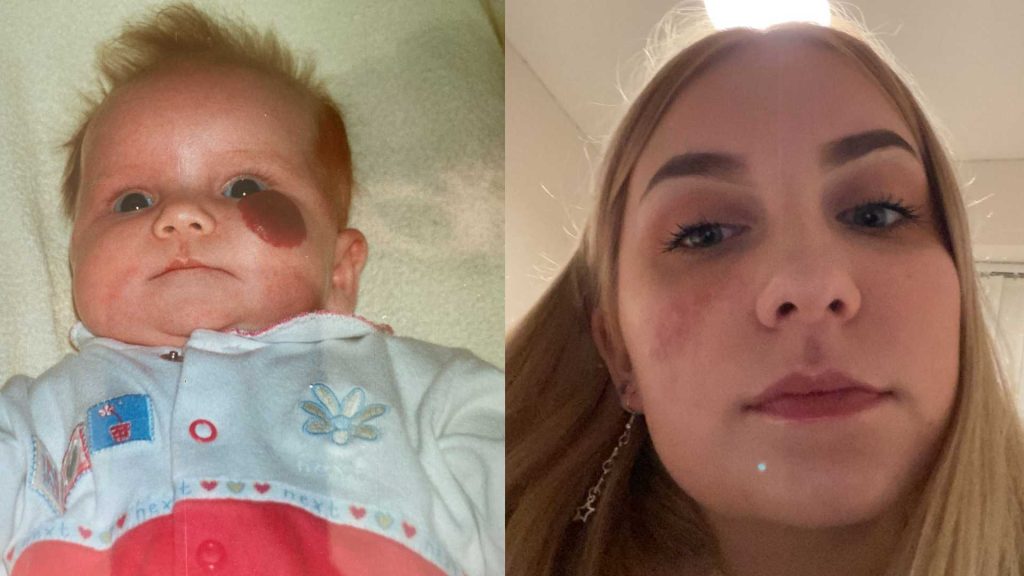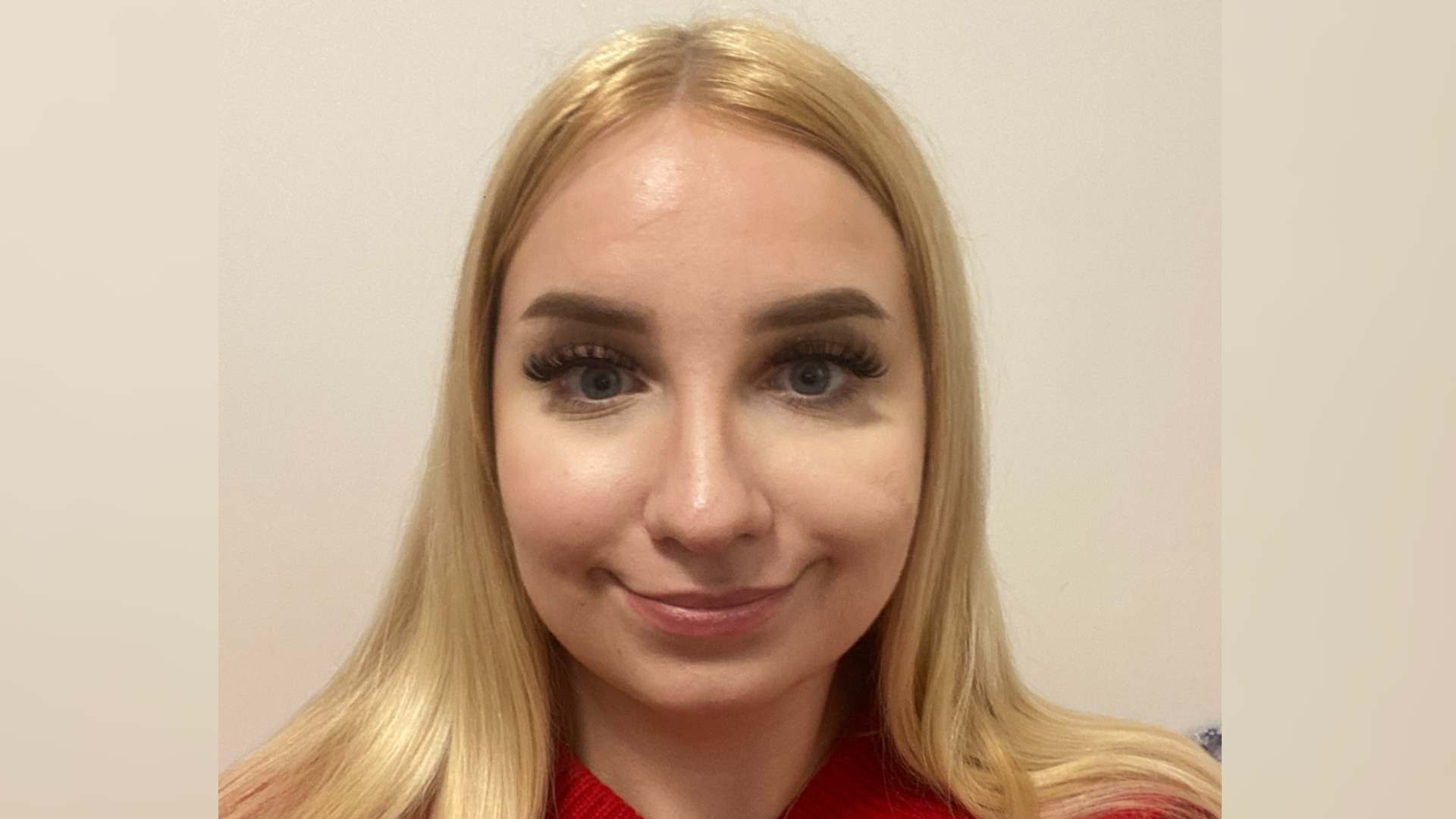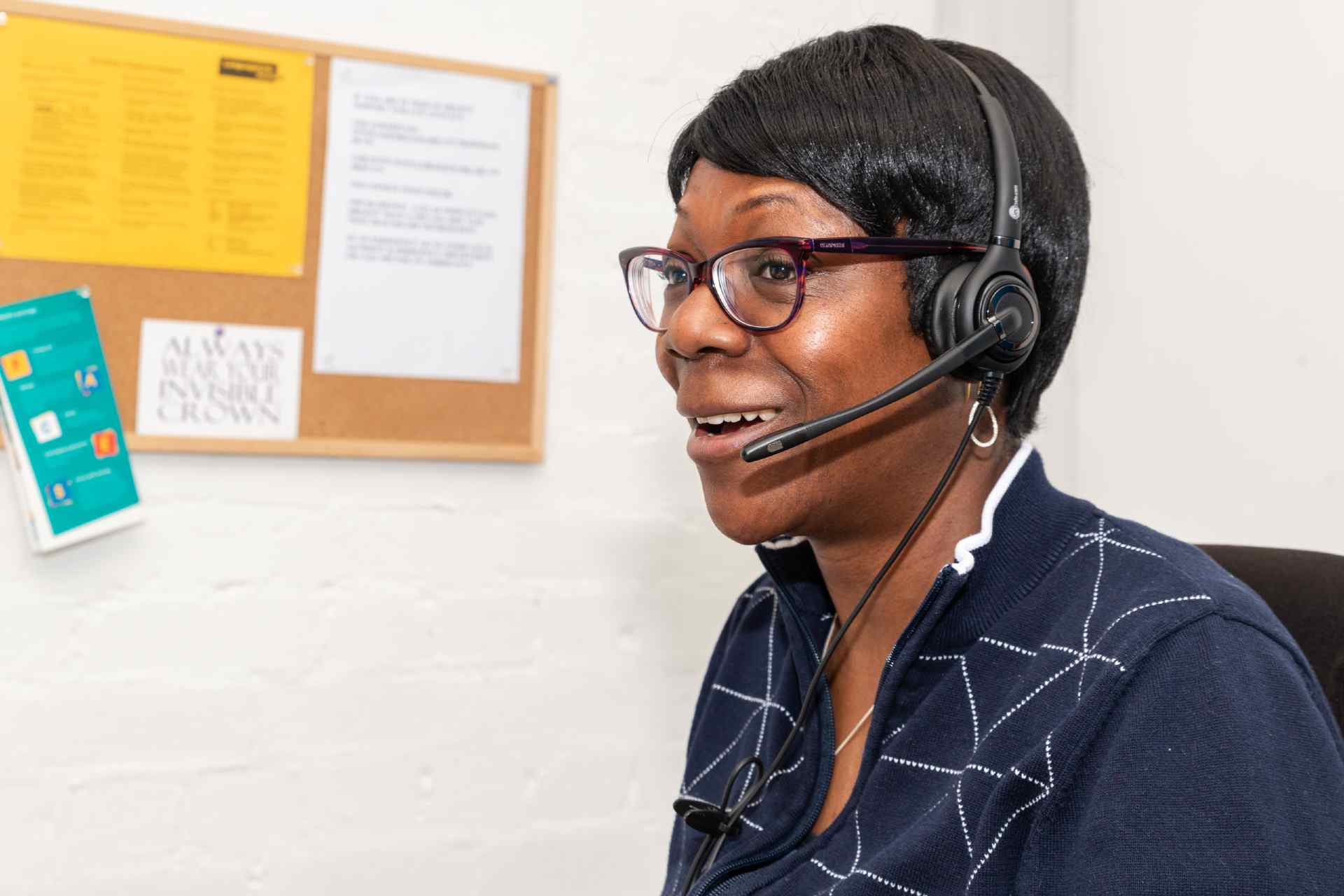I’m Sophie and I was born with a raised birthmark called a hemangioma on my face. During my childhood, I found it difficult to cope with the fact that I never saw anyone who looked like me. It made me feel like the outsider in every situation.
People would stare at me and make nasty comments about the way I looked. Thankfully, I had an amazing support network around me who would stand up for me in these situations, but it was hard feeling like I needed “protecting”. I didn’t have the confidence to stand up for myself, and I hated that.
When I was 16 years old, I made the decision to remove my birthmark. I couldn’t handle the stares and the comments anymore. While I knew I’d be left with a scar, this seemed a better option than having my birthmark.

Sophie as a baby and following the removal of her birthmark
Following the operation, I did feel a new sense of positivity. My scar was less obvious than my birthmark, and that gave me confidence. I no longer worried about how people were going to treat me or whether I’d be judged for my appearance.
However, I did have to battle with a strange sense of identity loss. Having a birthmark might have caused me challenges, but it was part of me. It was frustrating that I’d reached a place where I felt my only option was to change myself to be accepted. That should never have been the case.
During my consultation at Birmingham Children’s Hospital, I was referred to Changing Faces and took part in the charity’s Peer Group Chat service. I didn’t wear any makeup during the sessions, and this was hugely freeing. It was nice to expose my “real” self to a group of people I knew wouldn’t judge me. I hope to experience that again in the future.
Diversity shouldn’t simply be a box ticking exercise. It’s important that brands see its value and how it can help people to feel accepted in society.
Currently, I don’t like going out without makeup on. I haven’t done so since I was 16, which is four years ago now. There’s a barrier of overthinking that I’m having trouble breaking through. Makeup covers my scar effectively, which gives me confidence, but it means I worry what people will think when they do see it.
That’s why I’m so passionate about better representation and normalisation of visible differences. The more we see a variety of appearances in the media, the less people like me will worry about showing their true selves in public.
I’m a student at the Fashion Retail Academy and have decided to do my dissertation on brand representation of visible difference. Diversity shouldn’t simply be a box ticking exercise. It’s important that brands see its value and how it can help people to feel accepted in society.
Maybe if I saw people who looked like me as a child, I wouldn’t have felt that I needed to change my appearance to fit in.
I’m currently putting together a focus group in which participants who have visible differences speak about their experiences and what they would like to see brands do to improve representation. Anyone interested can get in touch with me via [email protected].
While general inclusivity is improving, visible differences are being left behind, and I hope my dissertation can convince brands to embrace visible differences as part of their future campaigns.
Making difference normal is vital. Maybe if I saw people who looked like me as a child, I wouldn’t have felt that I needed to change my appearance to fit in.
We all have the right to make our own decisions regarding the way we look, but hopefully in future, it won’t be the views of society that sway those decisions.

